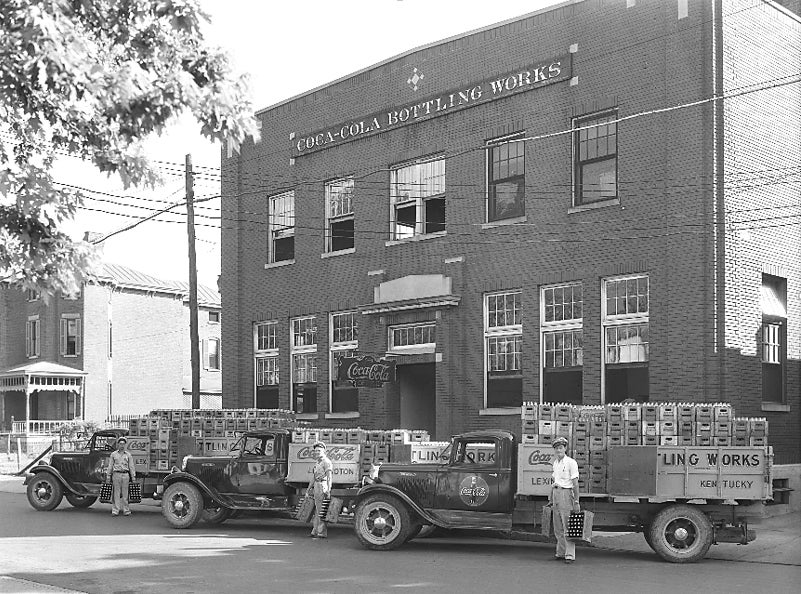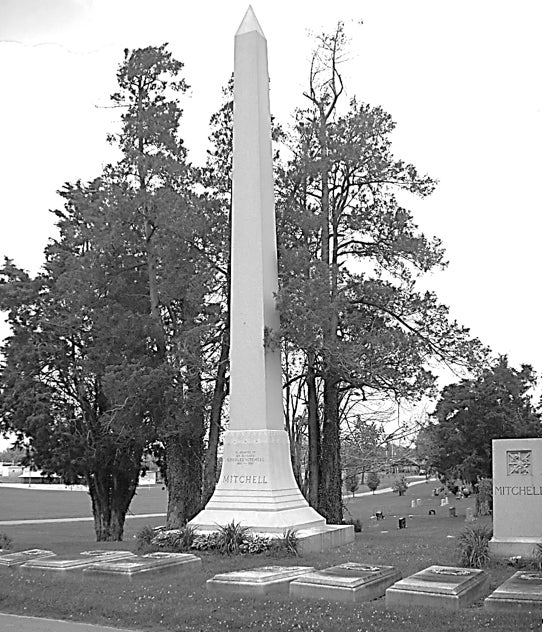Charles Mitchell: The Coca-Cola man
Published 11:43 am Friday, April 14, 2017
In the early 20th century two of Kentucky’s best-known beverage bottlers called Winchester home. Both were in the soft drink business.
There can’t be many people living here who have not heard of G. L. Wainscott, inventor and producer of Ale-8-One (locally known simply as Ale-8). The company is still in business and now has a national presence. Wainscott, widely known in his day, founded the Kentucky State Bottlers Association.
I suspect fewer of us will recognize Charles Mitchell, who was once acknowledged to be at the “head of Coca-Cola business in Kentucky.”
Mitchell (1868-1927) came to Winchester from Carlisle with his parents, William and Achsah Mitchell.
William began here selling shoes and “gents furnishings” at 9 S. Main St., and Achsah kept house upstairs. Her name has a biblical origin; Achsah was the daughter of Caleb, prince of the tribe of Judah.
At the time of his death in 1908, William, then retired, lived in the house he purchased at the northwest corner of Maple and College streets.
Charles sold shoes in his father’s store for a time, then in 1904 incorporated the Coca-Cola Bottling Works of Lexington “to install and operate a bottling plant for the purpose of bottling Coca Cola and other carbonated waters.”
The plant was located on West Water Street in Lexington. He later added bottling plants in Danville and Somerset.
The 1920 census lists Charles, single, living with his widowed mother at the house on Maple Street.
Three years later he married Myrtle Mae Critchfield of Princeton, Indiana; he was 55, she was 38. They had two children who died in infancy.
The couple moved to Lexington, where they purchased a fine home at 449 W. Second St.
In 1927, Mitchell built a new bottling plant at 451 W. Short St. outfitted with the latest equipment and accompanied by a modern fleet of delivery trucks. The plant was located a few doors west of St. Paul’s Catholic Church.
Mitchell and Wainscott had business connections. They operated in the same central Kentucky counties, socialized at bottlers association meetings and, in due course, had a squabble over their empty bottles. The latter may have been what led to a famous lawsuit: Coca-Cola Company sued Carlisle Bottling Works (a Wainscott subsidiary) for trademark infringement.
The formal complaint began when Mitchell company drivers asked local grocers in Carlisle for a Coke and were sold Wainscott’s Roxa Kola.
That brought in the big guns from Atlanta. Coca-Cola had sued dozens of times when bottlers tried to use similar names for their soft drinks — and Coca-Cola always won.
In June 1927, U.S. Circuit Court denied Coca-Cola’s request for a preliminary injunction.
Bullies with lots of money have been suing little people for centuries, and sometimes the underdog wins.
After Mitchell died, the suit continued through district court, court of appeals and the U.S. Supreme Court. Coca-Cola lost at each stage, its first defeat.
In December 1927, Mitchell, who suffered from asthma, contracted pneumonia and quickly succumbed at his home in Lexington.
His wife had him buried in Winchester Cemetery where his parents were interred. There are eight handsome ledger markers — each a thick slab of stone covering the entire grave — in the family plot, and the Mitchell obelisk appears to be the tallest in the cemetery. All the obituaries referred to Mitchell’s “great wealth” or “considerable fortune.” His estate was valued at more than $500,000.
Myrtle Mitchell took over as president and general manager of her husband’s bottling works. She seems to have had a natural talent for business, as the company continued to flourish under her leadership.
She was deeply involved in civic affairs and local charities. After her death in 1964, her estate built the Mitchell Fine Arts Center at Transylvania University.
Mitchell’s bottling company passed through a succession of owners until it was acquired by Warren B. Terry in the 1960s. He moved the bottling plant to Leestown Road. In the 1990s, the operations were acquired by the Coca-Cola Company.







